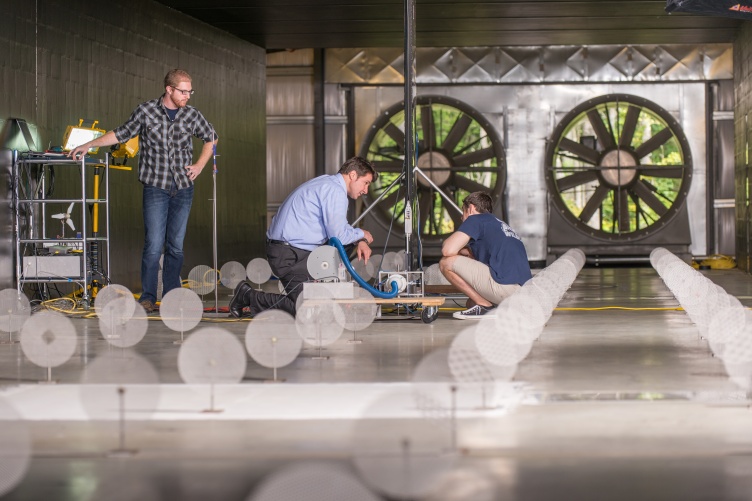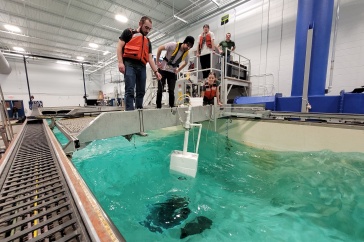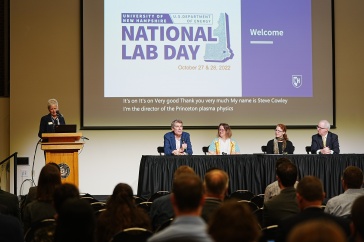
The UNH Flow Physics Facility, the largest wind tunnel of its type in the world, will host experiments for this research.
More than two-thirds of the U.S. wind energy resources are located in deep waters, prompting growing interest in the deployment of floating offshore wind farms. With a $2.5 million contract from the U.S. Department of Energy (DOE), a UNH team will lead research that will maximize power production, limit hardware damage and reduce the cost of floating offshore wind farms.
Led by Greg Chini, professor of mechanical engineering and integrated applied mathematics, the project will develop new mathematical and computational models and perform laboratory experiments and field measurements that will optimize floating offshore wind farms. Collaborators are UNH mechanical and ocean engineering faculty members Martin Wosnik, Chris White and Nathan Laxague, as well as partners at Brown University in Rhode Island and Bates College in Maine.

The modeling efforts will utilize novel applied mathematical tools to develop customized numerical algorithms that will dramatically reduce the cost of computer simulations of turbulent air flow in wind farms—over distances ranging from meters to tens of kilometers—while maintaining a high degree of predictive skill. The experiments will take place in the UNH Flow Physics Facility (FPF) with model wind turbines and advanced monitoring and measuring equipment.
The FPF is the longest wind tunnel (72 meters) in the world that has sufficiently high flow quality so it can be used to study fundamental properties of turbulent flow, such as between layers of the atmosphere and ocean. Training opportunities will be provided for post-doctoral researchers and students.
UNH will establish the Center for Fluid Dynamics of Energy and the Environment which will leverage the UNH-led DOE Atlantic Marine Energy Center, a hub for marine energy technology. The project is supported by a DOE EPSCoR Implementation Award. Funding from the National Science Foundation EPSCoR program supported construction of the FPF in 2011.
-
Written By:
Michelle Gregoire | NH EPSCoR | michelle.gregoire@unh.edu | 603-862-0126



















































